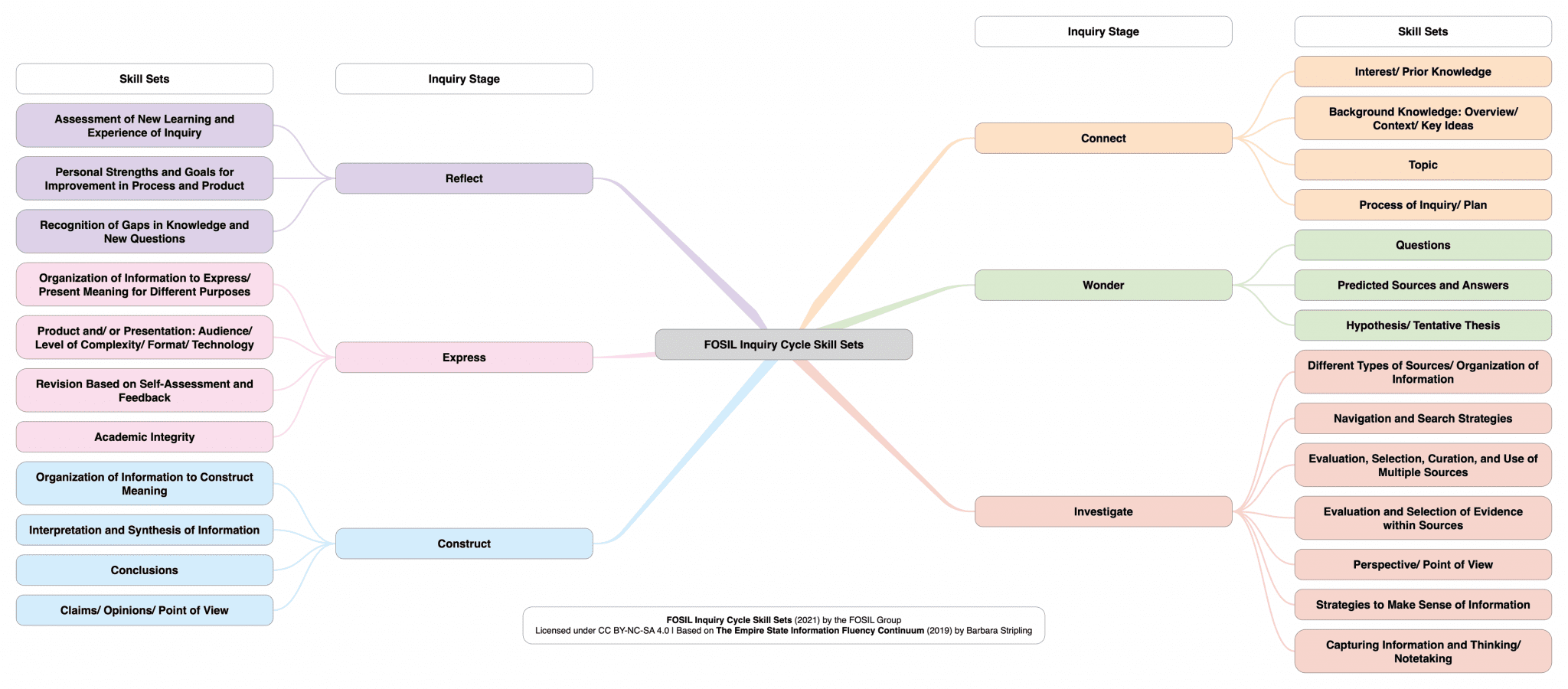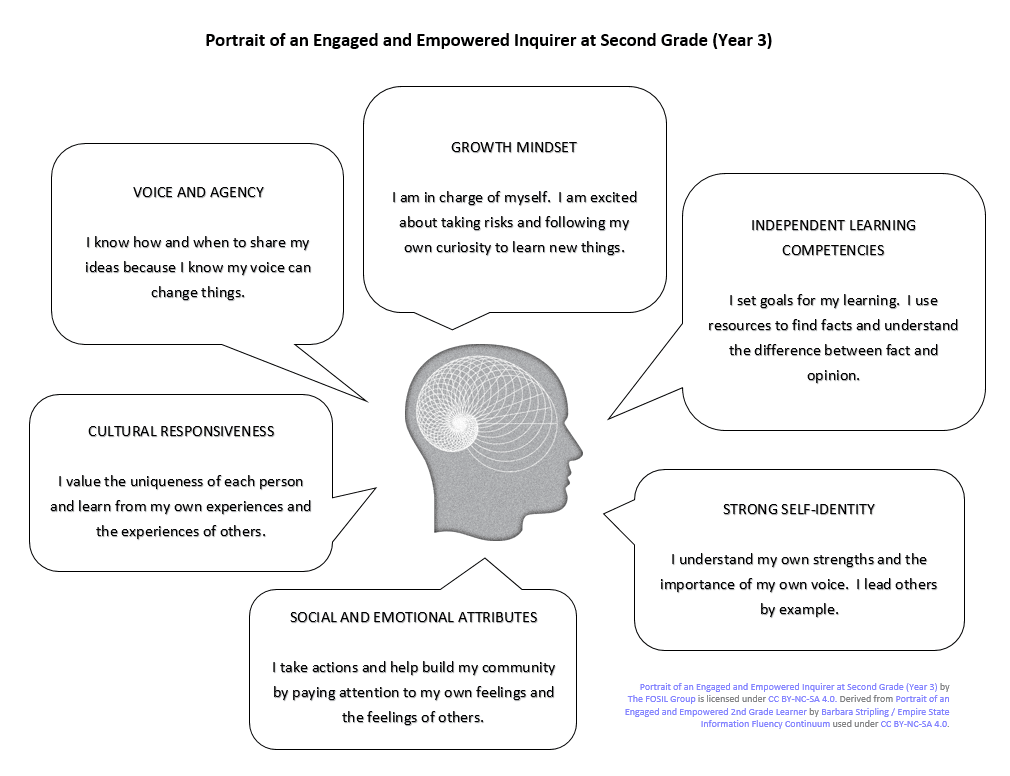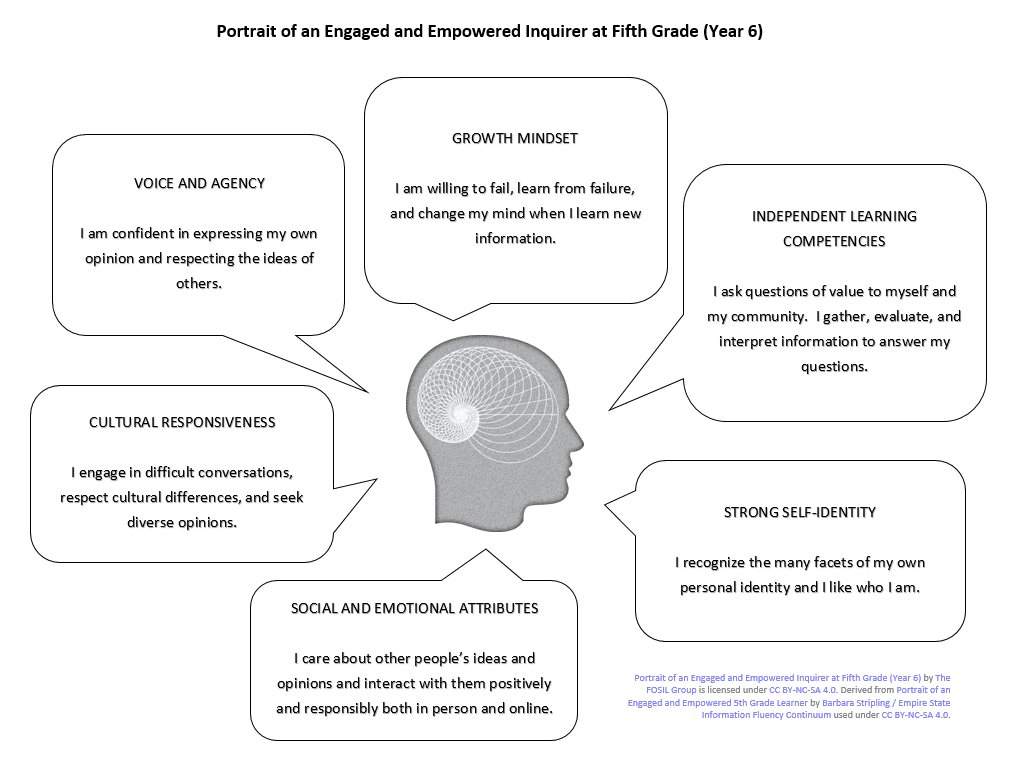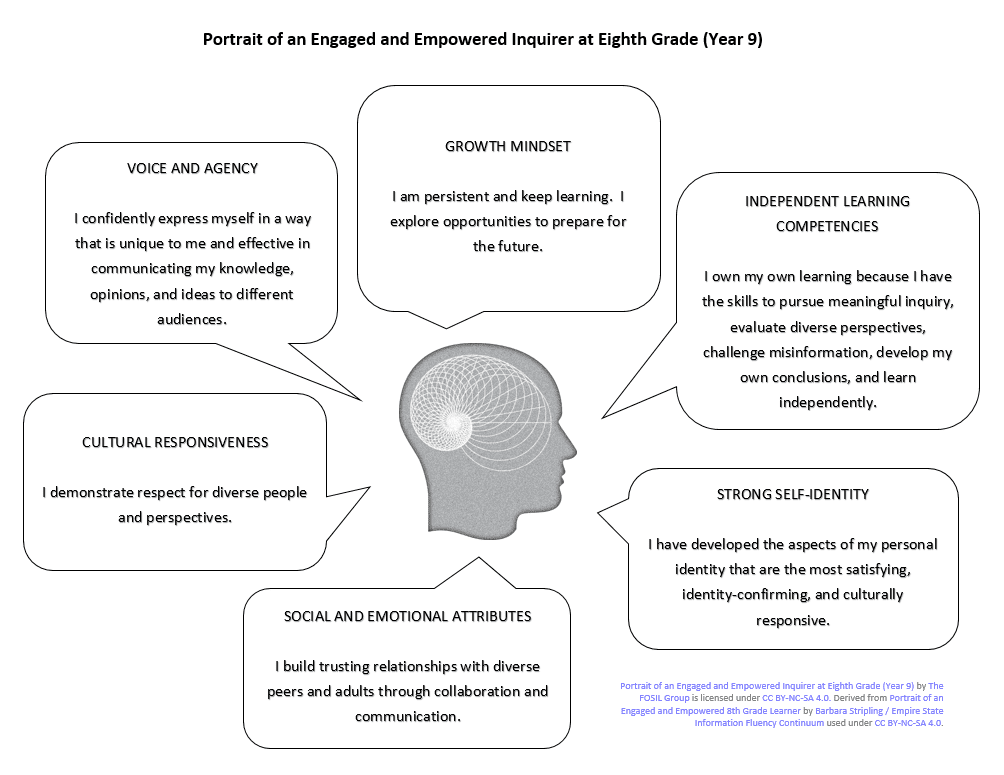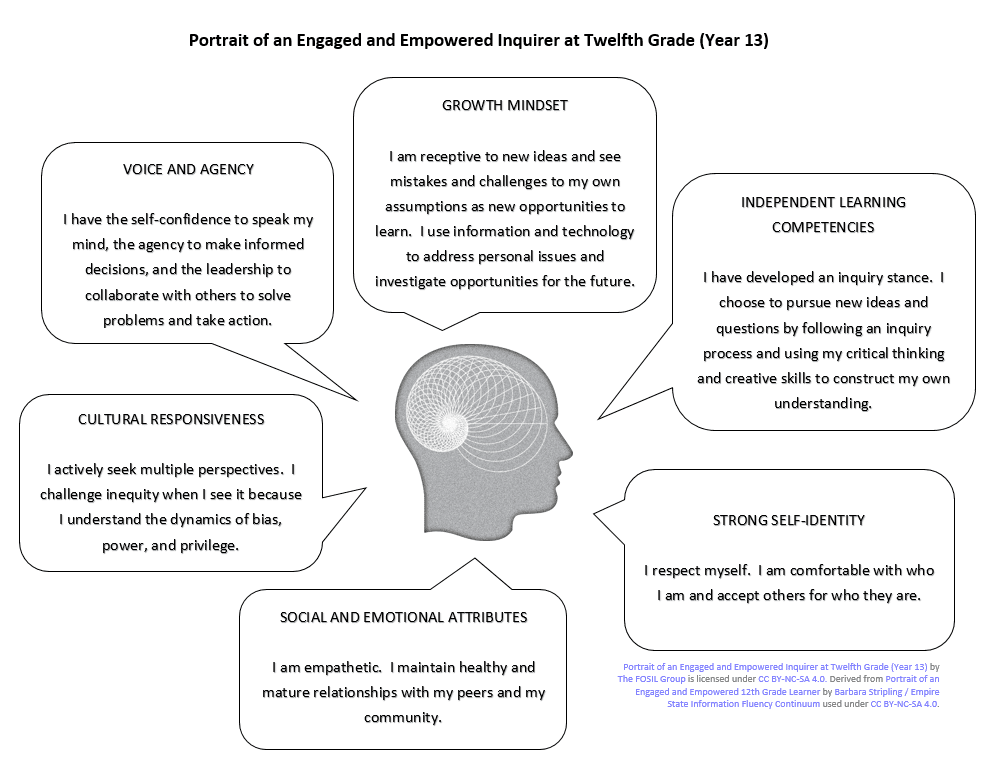Reply To: Guided Inquiry Design and FOSIL
Home › Forums › The nature of inquiry and information literacy › Guided Inquiry Design and FOSIL › Reply To: Guided Inquiry Design and FOSIL
Thank you, Lee.
It was a great pleasure for us to spend time with you and Alinda yesterday, and we are very grateful that you were willing to set aside such a generous portion of your evening for us.
Thank you also for your encouraging words – it is difficult at times to maintain perspective.
In responding to your points below, some overlap is inevitable:
- Thank you, and I am grateful to have been given a small part in this important and urgent work that we share.
- The possibility of colleagues accessing the TL course at Charles Sturt University crossed my mid as we were speaking, and I hope that we might explore this possibility further.
- Thank you for the very useful link to Brigidine College’s LibGuide. We were beginning to make good use of our LibGuide at Oakham School, and while we have invested in this here, we have so far lacked the means to develop it beyond basic functionality. I had not considered a LibGuide more broadly in relation to FOSIL/ inquiry, which is a very intriguing thought.
- Your point about the NSW IFF and inquiry is a complex one.
- Firstly, my point about the IFF was that because it is so oriented towards inquiry, and so explicit about the TL’s vital role in realising it, that it would have been helpful if a consideration of the IFF in relation to the inquiry process were included in the document. This is because the inquiry process covers so much of the IFF, and why I consider the work that you are doing in aligning the IFF to the inquiry process to be essential.
- Secondly, I was not suggesting that the entire IFF should have been conceived within the inquiry process, which would not be possible even if it were desirable. This is the same for the full ESIFC. However, the outcome of a process of inquiry is much greater than just the skills that enable the process, and associated subject area learning. This would greatly increase the amount of the IFF that can be aligned to inquiry, if inquiry is understood as both a stance towards and process of learning important content and the broader outcome of that process in terms of the development of the student as inquirer. The challenge, however, is how to reflect this in a meaningful way. This is how our discussion about the definition of inquiry combined with the Portraits of an Engaged and Empowered Inquirer came about (posted below for ease of reference), and what Barbara and I have been discussing for some time.
- This brings us to the question of assessment. This reminds me of work that we were doing at Oakham School to align the IB MYP Approaches to Learning skill categories and skill clusters to the FOSIL inquiry process and skills. What we were eventually able to demonstrate is that a well-designed process of inquiry aligned closely enough at the skill level with the skills in the ATL skill clusters for us to be confident that we were also addressing all the skill categories. This then enabled us to choose in any given inquiry which FOSIL skills in each stage of the inquiry process were most appropriate for that inquiry, and then trace the mapping across from those skills to the corresponding skills in ATL skill clusters, and up into the ATL skill categories. This meant that the unmanageable number of ATL skills, which were also not arranged in a logical learning process, became manageable within the logic of the inquiry learning process, which made the world of difference in practically teaching and assessing them. This may not immediately make complete sense, but if you look at the topic and would like to discuss it further, please ask.
- I’m pleased that you have acquired iThoughts. I am assuming that the FOSIL skill maps that I have created – continuum and priority skills, and priority skills – on a Mac would work equally well on Windows. If so, and if it would be helpful, I will happily send you these files.
- The GEN site was and remains incredibly helpful to me. A key GEN reference is Gordon Wells, and if you have not already come across the following and can obtain it, I highly recommend it: Wells, G. (2001). The Case for Dialogic Inquiry. In G. Wells (Ed.), Action, Talk, & Text: Learning and Teaching Through Inquiry (pp. 171-194). New York, NY: Teachers College Press.
- Hopefully something like the EPQ will emerge from the review.
We continue to wait patiently with you for news about Rome.
Darryl
—
Definition of inquiry PLUS inquiry process (plus skill sets and PK-12 framework of skills) PLUS outcome of the process of inquiry over time equals…
Inquiry is a stance of wonder and puzzlement that gives rise to a dynamic process of coming to know and understand the world and ourselves in it as the basis for responsible participation in community.
